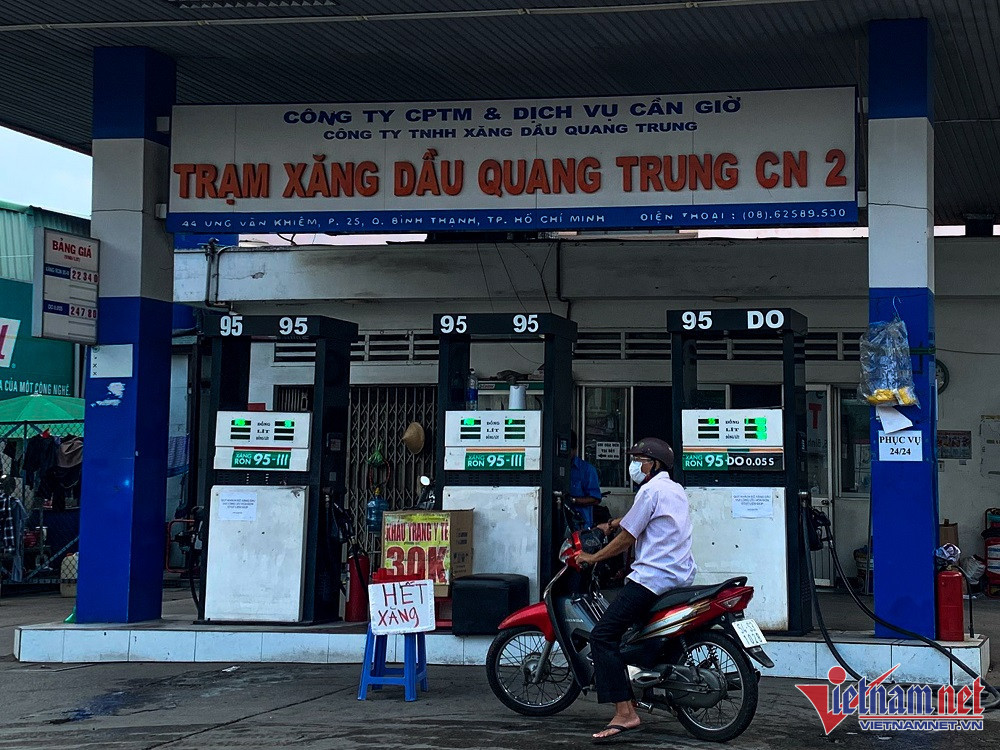
Doanh, owner of a filling station in HCM City, plans to stop selling gasoline retail. She will lease the street-front house owned by her family and remove the petrol pumps.
According to Doanh, many of her acquaintances have given up this kind of business.
“Those who have to pay rent for premises cannot continue their business, while people who have retail premises would rather rent rather than run the business themselves,” she said.
“Agencies cannot ensure reasonable discount rates high enough for filling stations to make a profit. The retail discount rates float,” she explained. “The discount rates need to be high enough to allow investors to break even, not take a loss."
At present, retail discount rate filling stations can enjoy VND700-800 per liter, but the rate goes up and down all the time.
“In the time to come, if distributors offer the discount rate of VND300 per liter, and transport costs VND100-150 per liter, we will be able to make a modest profit of VND150,000 if we sell 1,000 liters and VND1.5 million if we sell 10,000 liters (the operation cost and pay to workers not taken into account),” she said. “Meanwhile, the sale of 10,000 liters a day is impossible."
According to the HCM City Authority of Market Surveillance released on Jan 26, in HCM City alone four filling stations have stopped operation, following procedures for dissolution.
Meanwhile, at a press conference on February 9, Ngo Hong Y from the HCM City Department of Industry and Trade said that six filling stations have suspended operation, including ones that are being dissolved and ones that need repair.
Dong Thap's provincial industry and trade department said that 59 percent of filling stations have said they will suspend operation because of losses.
Huynh Tran Thanh Phong, the owner of a filling station in Be Tre, in his petition to agencies, wrote that since September 2021, his enterprises have been taking a loss because of the regulation on discount rates.
With the discount rate of VND100-200 per liter and transport cost of VND70 per liter, the company cannot negotiate with distributors and does not have the right choose supply sources.
“We have incurred a loss of VND500 million, but we still keep selling. If the situation cannot improve, we will have to stop operation,” he wrote in a petition lodged by 9,000 filling stations nationwide.
Regarding discount rates for filling stations, Nguyen Huu Dung, director of the Dong Thap Department of Industry and Trade, said that "ambiguity" exists between filling stations and distributors.
“Petroleum products are not lacking in the market. The important thing is that the discount rate needs to be high enough for filling stations to survive,” he said. “Low commissions and no profits will force them to shut down."
Deputy director of Hau Giang Department of Industry and Trade Nguyen Vu Truong confirmed that filling stations are in difficulties because of the policy on discount rates.
At present, there is no fixed discount rate for petroleum product traders. The state doesn’t set the discount rate, and only controls the retail prices.
Truong said there should be detailed regulations on cost prices and commissions to ensure profits for retailers. The discount rates would be determined by wholesalers and distributors.
Meanwhile, Tra Vinh Department of Industry and Trade suggested a minimum discount rate and commissions for sale agents to maintain normal operation of retailers and ensure uninterrupted supply for the market.
The Vietnam Confederation of Commerce and Industry (VCCI), in its written comments about the draft decree amending and supplementing Decrees 95/2021 and 83/2014, pointed out that filling stations don’t want to sell because of the zero discount rate, but they still have to continue to sell products or they will be punished by appropriate agencies.
VCCI has suggested two options. First, if the state doesn’t intervene in retail prices and the prices are determined by market supply and demand, it will be unnecessary to set minimum discount rates.
Second, if the state decides that it needs to continue to intervene in prices, minimum discount rates need to be fixed to ensure profits for retailers.
Luong Bang